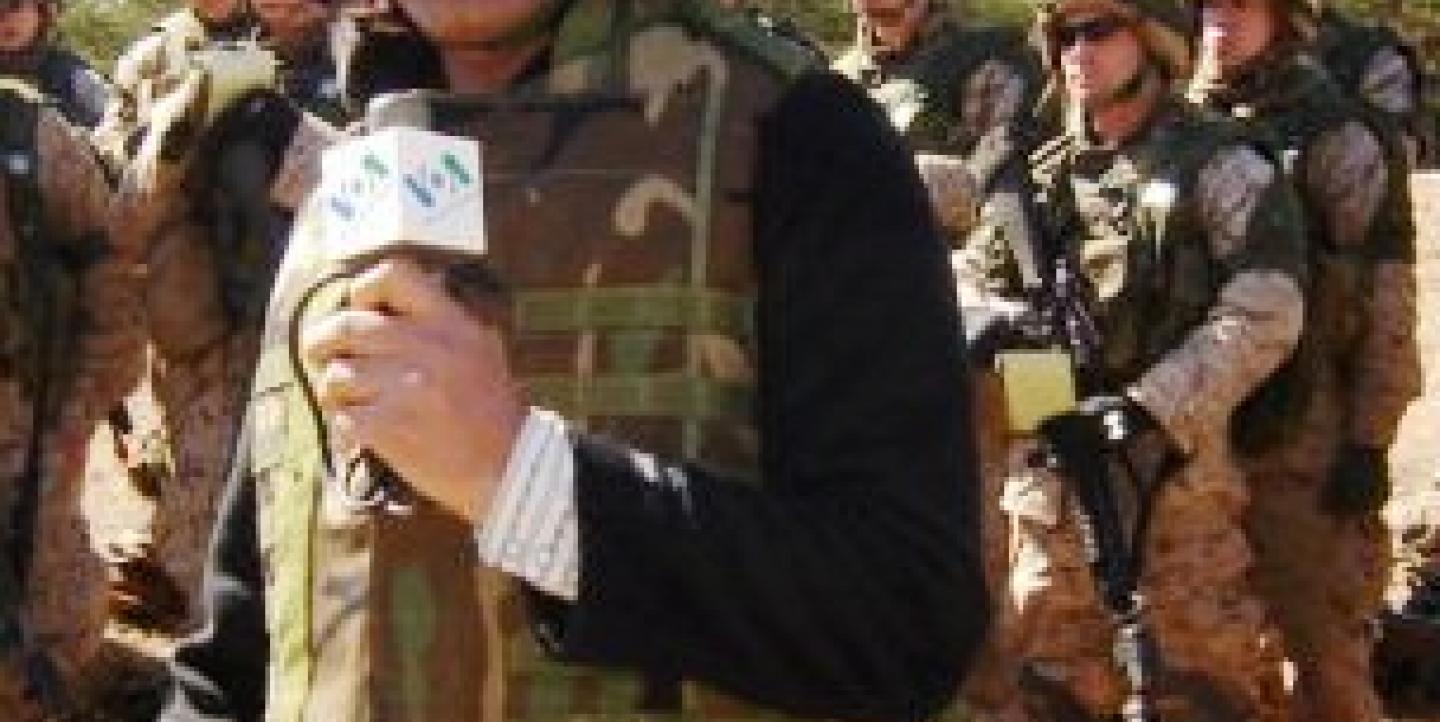Each month, IJNet features an international journalist who exemplifies the profession and has used the site to further his or her career. If you would like to be featured, email a short bio and a paragraph about how you have used IJNet here.
This month's journalist, Iftikhar Hussain, used IJNet to find training opportunities seven years ago when he was living in Pakistan. Now based in Washington, D.C. working for Voice of America, he refers the site to youth in Pakistan where resources for aspiring journalists are thin.
IJNet: What is your current position?
Iftikhar Hussain: I am based in Washington since 2006 and work with Voice of America (VOA) Deewa Radio where my current position is international radio broadcaster.
IJNet: How has IJNet helped you?
IH: I was able to attend a three-day Asian Development Bank workshop on water issues in 2004/2005 in Islamabad, referred online media training to a journalist friend in Holland and very recently sent IJNet info on the Wallace Fellowship to a Karachi-based journalist working with the Express Tribune.
In my view, IJNet can be of great help to young and mid-career journalists especially in Pakistan where young people need opportunities to advance their professional goals and polish their skills. In my opinion, IJNet [should] focus on journalists working in the war zone of Pashtun ... in Pakistan.
IJNet: How do you get your ideas for stories?
IH: Based in Peshawar, Pakistan, or here in Washington, as a journalist I have covered one of the most news-generating spots of the world for more than 10 years of my professional career. The real life situation of the militancy-hit people facing violent extremism on daily basis has been my source and topic for stories. The war against terror, military operations in the region, the impact of 9/11 impact on people's lives, victims of extremists' violence, suicide bombings, poverty, the natural calamities, minority issues, Afghan refugees problems, economic troubles, internal displacements of people in the region, Pakistan-U.S. relations and other related topics have marked my stories as a journalist.
IJNet: What has been your best story or work so far?
IH: As a journalist stories who works on a range of issues both here in Washington and back in the region, many stories have fascinated me. The one I liked and [that was] well received was my two-week visit to Guantanamo Bay. To report on the untold aspects of the detention center and the inmates there was appreciated by the audience in the region. The detention center has numerous Pashto-speaking detainees and the visit was a unique and probably the first-ever account of a Pashto-speaking journalist. I co-hosted a one-hour live show where listeners asked direct multiple questions and got answers based on firsthand journalist observations. The listeners said their earlier view of Gitmo [was] a place of orange suits and Quran discretion but the show account changed their views in many ways.
IJNet: What advice would you give aspiring journalists?
IH: To aspiring journalists I would say journalism is more a passion than a profession. No news is a small news. The smallest of the news can bring the biggest of the changes in the lives of the people living in far lands you even do not know. In journalism nothing comes easy. Curiosity, consistent hard work and commitment can guide you to accomplish your goals.
IJNet: Are there any training programs or schools that were particularly useful to you?
IH: I was a Jefferson Fellow at the East-West Center in 2004 in Hawaii and it was a life-time trip to many U.S. states [with] exposure to U.S. institutions/media and networking with journalists from around the world. The fellowship was a great opportunity to broaden a view as a journalist and the global context was quite helpful for local coverage in Pakistan.


